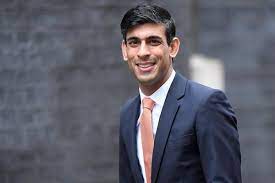The United Kingdom has announced that foreign students apart from those on postgraduate research programmes, will be prevented from bringing their spouses, children or parents into the country from January 2024. Suella Braverman, the Home Secretary made the ban known as part of the mechanism to reduce net migration.
Braverman had said there had been an “unexpected” spike in the number of dependents – saying the economic benefits brought by students could “not be at the expense” of the Tory promise to cut immigration. The ban will affect all Master’s students and some other post-graduates, but it will not apply to PhD students who are highly skilled and whose courses last between 3 to 5 years.
If implemented, the crackdown will affect many Nigerian students hoping to pursue their postgraduate studies in the UK, as they accounted for the highest increase in the number of dependants accompanying persons with study visas in 2022.
As mixed reactions continue to trail the ban imposed on immigrant students from bringing members of their family into the United Kingdom, some experts in the field of immigration and education have shed more light on the new policy and its implications on the pursuit of acquiring international education.
First, a member of the United Kingdom parliament, Carol Monaghan, has condemned the UK’s new immigration policy, which banned international students from bringing family members with them from 2024. Reacting to the immigration policy at parliament on Wednesday May 24, Monaghan said the students and their families made valuable contributions to the UK, contributing £40 billion to the economy in 2022.
According to the UK lawmaker, the international students enrich the UK society as they have skills, which have proved useful across key sectors. Monaghan said, “With labour shortages in healthcare, STEM, IT, to name a few, how can the minister fail to recognise that this policy will aggravate these? I’d like to ask the minister, what assessments have been carried out on the economic impact of this change on the university sector?
According to her, “The reality is that many students who come into the UK look beyond their studies and want their families to be part of their experience. “Without a way for overseas students to bring their families, many will opt to go elsewhere and any drop in international students numbers will cause further harm to universities that are already facing financial difficulties.”
Meanwhile, the UK universities, have also kicked against the country’s new immigration rules. The Universities UK International (UUK), a body of universities, had said the move was a threat to the country’s global success as a top destination for international talent.
The Director, UUK, Jamie Arrowsmith said, “International students make an invaluable contribution to our universities and to the UK’s economy. Building on the government’s explicit commitments and ambitions, which were clearly set out in the international education strategy, we have seen significant growth since 2019.”
From Nigeria, Education Researcher, Dr Peter Ogudoro, in his reaction to the development said records have shown that the United Kingdom as a country and as a government had been generous and welcoming with respect to Nigerians who like to come to the UK to study. He explained that the UK government never made it very difficult for people who genuinely want to improve their knowledge and skills and enhance their capacity to be able to enjoy a quality life and be globally competitive.
Noting that Nigerians, upon recognising this fact, and influenced by the good examples made by people who had benefited from the education offered by the UK government, Ogudoro, however, also argued that poverty was a factor driving people out of the country.
The researcher said, “What we find out is that our poverty here (Nigeria), which the UK government has realised that for some years now, not just Nigerians, but people in many countries who are coming to the UK to study, legitimately want to carry their family members along, maybe spouses and children, who they don’t want to leave behind while they are in the UK improving themselves”.
Ogudoro said when immigrants come to the UK to study, pay their fees, and bring two to three family members along, the UK government might have probably discovered that much had not manifested in terms of the net dividend expected to be derived from welcoming people from other countries to study in the UK.
He said, “They (the UK government) look at data because it is a country that doesn’t work on assumptions, and data is obviously revealing that a lot of people that the students studying in the UK drag along are actually not highly skilled people.
According to him, they want to limit that; for those who are coming for their Master’s programme, which when you look at the data, most people who go to the UK to study, go for their Master’s degree because going there, to do undergraduate programmes is cost-intensive. So, after doing their Master’s, they stay on to finish their PhDs, which will take a minimum of two to five years.”
The Researcher explained that “Bringing everybody along and rubbishing the whole purpose of promoting international education is certainly not what a responsible government wants to accommodate”.
This calls for more intensive, objective analysis that will balance the opinion of a member of the United Kingdom parliament, Carol Monaghan, the UK Government as represented by Suella Braverman, who is the Home Secretary of Government and other view points as represented by the Nigerian Education Researcher, Dr Peter Ogudoro. In all, the best decision needs to be taken so that all responsible interests are safe guarded.








More Stories
Four Texas police officers commit suicide within six weeks
Inmate serving life sentence allegedly strangles wife to death during conjugal visit
Woman who works in funeral home, chops off dead man’s pennis, shoves it into his mouth for being a sex offender